|
Our vision for Homer J's Senior Dog Sanctuary extends far beyond promoting senior dog adoption. Not only will we provide sanctuary to our furry four-legged companions, but we want to create a safe space for adolescents in the foster care system to heal their emotional wounds and build a strong foundation to ensure their healthy transition to independent living and adulthood.
As part of this initiative, we will provide the kids in our program with opportunities to develop job skills and a personal ethic that will steer them towards lifestyles which support sustainability. With plans for a facility large enough to support both residents and staff, it seems logical for us to use this space and our collective energy to grow as much food as we can. We want to do more than just grow food as a means of personal sustenance, but also to take this food to market where we can share with our neighbors both nutritious food and our vision to ensure everyone's basic needs are met regardless of age, breed, or circumstance. Knowing that this was a big part of our vision and that I have no large scale farm experience, I knew I had to find a way to learn as much as I could about organic farming. The organic farming industry is unique in that it provides ample opportunity for aspiring farmers to learn from seasoned growers by way of internships. Some of you may be familiar with World Wide Opportunities on Organic Farms (wwoof.net) and National Sustainable Agriculture Information Service (attra.ncat.org), websites that seek to connect established farms with those interested in internship opportunities where they can receive hands on experience with all aspects of the farming business. While WOOF charges prospective applicants a $40 per year membership fee, ATTRA offers free service for interns to search for opportunists that meet their needs and interests. I found Terrapin farms, a 7 acre organic farm, located in beautiful Whitefish, MT on ATTRA and contacted the owner Judy by e-mail to express my interested in spending the month of June on the farm. Judy accepts interns from March through November and requires a minimum of a one-month stay. Besides learning the ins and outs of farming, from field to table, Judy provides her interns with comfortable accommodations and three, all organic meals per day; for interns who are working more than one month, there is even an opportunity to earn a stipend. Once Judy heard about my desire to incorporate farming with the Senior Dog Sanctuary she was as excited to have me as I was to be there. Judy has been growing organic food in the challenging climate of northwest Montana since long before the organic food movement began gaining momentum. With more than 25 years experience, she is a walking encyclopedia of information. Her farm produces hundreds of varieties of vegetables such as leafy greens, peppers, egg plants, tomatoes, edible flowers, and so much more. She has extensive information about all of the plants, each is like old old friend she is re-united with every spring. The 7 acre farm includes a large green house, three hoop houses, a high tunnel and row after row of raised beds for planting. The produce is for sale to both local restaurants and the community at large at two weekly farmers markets. A Day on the Farm Monday through Friday, work begins promptly at 8am. Our first task was to fulfill the wholesale orders that would be going out to local restaurants later that afternoon. Judy would meet us in the field and give us the list of items needed for that day and the poundage required. We would either work in teams of two, or head out alone with our trusty scissors (or a big knife depending on the produce in question) and two buckets (one for sitting and one for collecting the produce). Some types of produce are more fun to harvest than others. While I will avoid the painful details of which was the toughest, I will say that harvesting the amazing strawberries was my favorite task, and I will bet you can guess why. Even with 3-5 people harvesting, it would take us most of the morning to fulfill the wholesale orders, including weighing the produce and preparing the orders for delivery. Once the orders for the day were filled, it was on to my favorite part of every work day...lunch. Cooking responsibilities were rotated among the interns, but we always sat together for the shared meal in the afternoon. The meals consisted of vegetable stir fry, rice, potatoes, homemade bread (from the Bread Master) eggs, tofu, and the ultimate addition to any vegetarian meal, Bragg's Liquid Amino Acids. As a part-time vegetarian before I left for the farm, I was worried that the vegetarian diet would not meet my energy needs for long days of manual labor, but this was far from the case. The meals were plentiful and delicious. There was never a day where I walked away from the table hungry. After lunch (usually 30-40 minutes) we would return to the field for our afternoon duties. While I was there, planting, watering, and delivering the day's harvest were the main tasks. I was surprised by the overall lack of mechanization on the farm. Aside from using a tractor to shape the beds (interested interns are given the chance to drive the tractor) and a fleet of trucks older than I am that we used to take the plants and produce to market, most of the work was done by hand or trowel. We would plant long rows of peppers, tomatoes, egg plants, edible & non-edible flowers and so much more. During these mild Montana afternoons, us interns would sit across the row from one another, chatting about our past lives, and our hopes for the future as we dug our hands in the dirt and transplanted vegetables from the plastic trays used in the green house, into the ground. These were some of my favorite times. Although the schedule said the day ended at 6:30, I found this was rarely the case. Farming is not conducive to fixed start and end times. When the witching hour came, we would find ourselves with a half planted row, or needing to rotate sprinklers, or some other task that begged to be finished. No matter how long we worked the field (rarely did we stay past 8) Judy would always be the last one out. I was amazed by the vitality and energy of this woman. She out worked me time and time again and clearly demonstrated what it takes to manage an operation like this. It was hard to call it a day when someone old enough (no offense Judy) to be my grandmother was still out there working. Some of you may be wondering, "Where was Rufus during all of this?" Well, in true senior dog fashion, Rufus mostly napped during these long days. The real question is not what was Rufus doing, but where was he doing it? His early morning naps would usually take place in the bedroom of the bunk house, where I slept, on the bed, with the electric blanket on low to keep him warm. By mid-morning, when the temperature had warmed to a pleasant degree, Rufus would venture from the bunk house and rotate his sleeping spot from sun to shade and back again, in the tree lined area where we washed and weighed the produce. He was equally loved and appreciated by all, and even managed (or I should say was given the privilege based on seniority) of being the big dog on the farm. Although three times the size of Rufus, Noche, Judy's four-legged companion, allowed him to be the boss. With the work day done, we would all head for the showers and the front porch of the bunk house. Most of us hippy types, worked barefoot in the fields, and sat in the dirt any chance we got. Needless to say at the end of the day we were covered in dirt, but not to worry, it was organic dirt. Despite the long hours, even getting off as late as 8pm meant we still had three hours of daylight left. During these long days of summer, on the western edge of the Mountain Time Zone, the first stars were not seen until well after 11pm. If we had the energy, this left us plenty of time to recreate and enjoy our downtime. Some of our favorite activities were going for a swim at nearby Boot Jack Lake, or heading into downtown Whitefish (the culture and peoples of Whitefish, MT deserve their own blog) for a beer and some ping pong at the Great Northern Bar and Grill. About the Great Northern I will say this, I have never seen a moon so beautiful as the one the shines it's light on the Great Northern, and the color of her hair could only be described as electric green. Although the work days were long, and the work itself was never done, Judy always made sure that her interns got pleasure of two days off per week. In this part of Montana (or any part of Montana for that matter) that means endless opportunities for outdoor recreation. We camped, kayaked, backpacked, and day-hiked, in an environment of untouched natural beauty rarely seen in our modern world. Glacier National Park was a short forty minute drive to the north and we were surrounded by national forest, mountain lakes, and endless hiking trails. There were two lakes within 15 minutes, and Judy would allow us to take her kayaks and canoes out for a day on the water. Even Rufus got to enjoy some time on the open waters (see picture below). It is hard to describe the natural beauty, and the feeling of being surrounded by mountain peaks and trees, with scarcely another human in sight. Lessons Learned Despite spending only four weeks on the farm, I learned much more than I had anticipated. For example, shortly after returning to my home base of Reno, I went to a BBQ at a friends house, where there is a large and diverse garden. As he gave me a tour of the garden I realized how many of the plants I was able to identify by their leaves and I was even able to differentiate varieties of squash and egg plant by their fruits; even I was surprised at how this knowledge had become rooted in my mind. I credit this quick learning curve to Judy and her passion for farming and her desire to provide her interns with an unparalleled hands-on-leaning opportunity. More than just learning about the different plants and their preferences of water, sun, and soil, Judy taught me exactly what it takes to be an organic farmer. Judy is an organic farmer because she has a passion for the land and a love of organic food. Buried just bellow the surface, disguised as lessons on how to manage a farm, Judy is sharing lessons about how to live a life one can be proud of, and the dedication and hard work that it takes to take your dreams, root them deep within the earth, and watch them grow into the fruit of your daily life. For her it is more than a job, or a way to survive, it is her life's work. I could not have asked for a better mentor. I am also blessed to have spent the month with three of the most amazing people I will ever meet. Grant the Bread Master, Katerina Holy-K, and Sam J Day, and I went from strangers to lifelong friends in just four short weeks. I do not waste time asking why the universe chose to bring us together in this beautiful place, all under the tutelage of one of the most amazing woman I will ever meet, but I do like to wonder when I will get to see them again. Suffice it to say that when I do start Homer J's Senior Dog Farm, these will be the first people I call and ask to join us. So what about Homer J's farming operation, you ask? One thing I learned at Terrapin is that it takes a lot of energy to grow that amount of varieties Judy has at Terrapin (the diversity is one of the reasons interning there is so valuable). When we start growing as more than a means of organizational sustenance, I have concluded it would be best to just grow one thing and grow it well. While at Terrapin I learned that peppers love hot soil. So much in fact, that we covered the beds that peppers were planted in with a plastic sheet called IRT which raised the bed temperature by a couple degrees. Here in western Nevada, where the average temperature is at least a few degrees warmer, I am certain we could grow some of the best tasting peppers around. So be on the look out at a farmer's market near you in the coming years for Homer J's Senior Dog Pepper booth. You will recognize us because our booth will be staffed by energetic foster kids and there will be a couple old dogs rotating their napping position from sun to shade and back again. For more information about Terrapin Farms and Internship opportunties, contact Judy Owsowitz at [email protected]
1 Comment
|
Archives
October 2022
Categories |

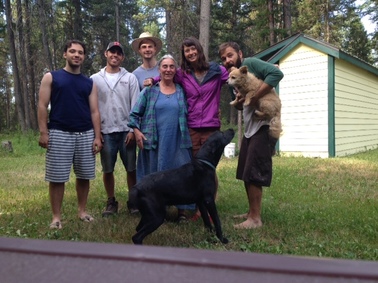
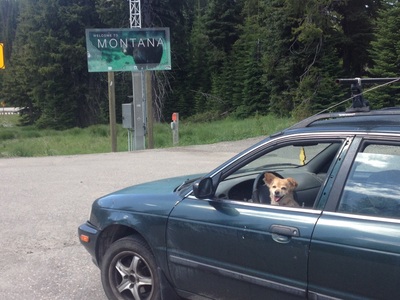
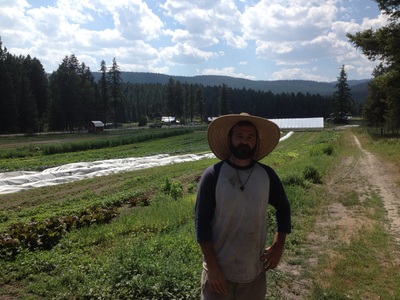
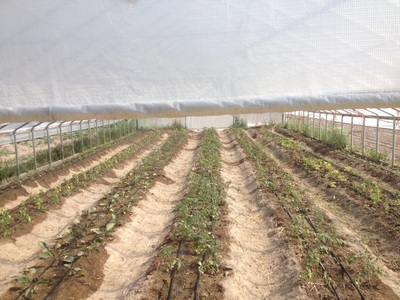
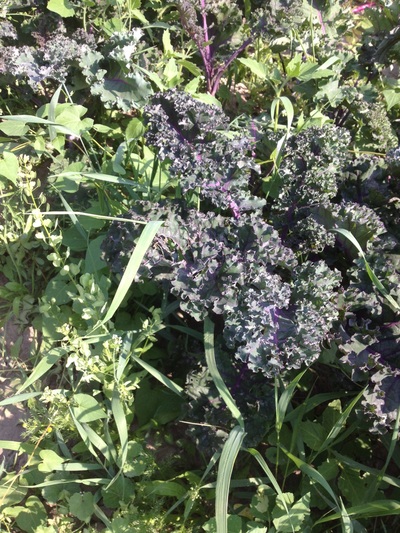
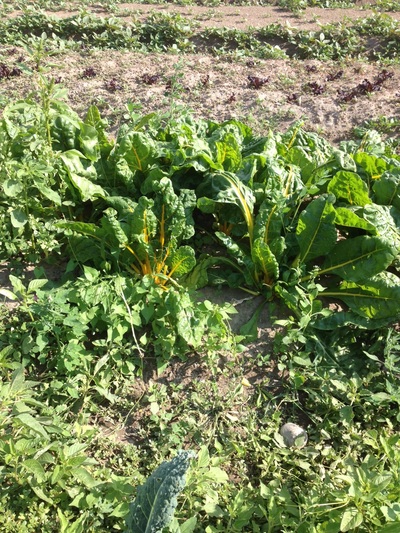
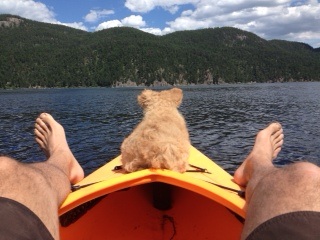
 RSS Feed
RSS Feed
